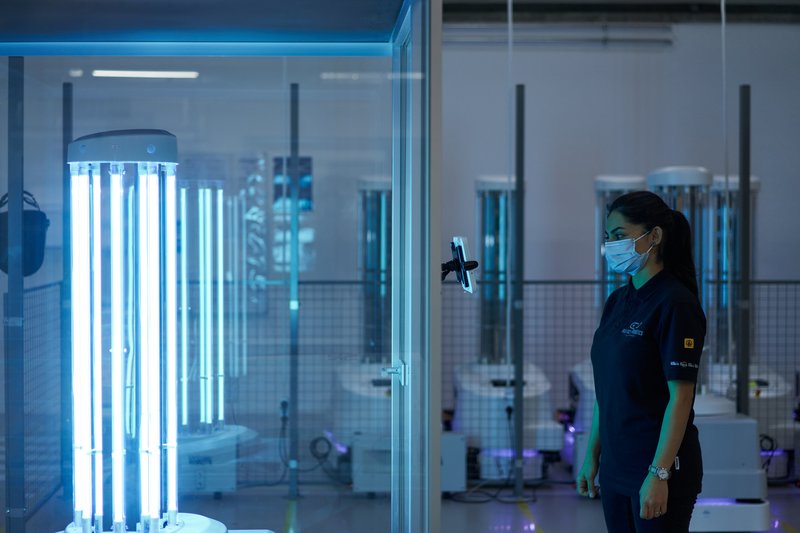Thessaloniki gets ready for its metro launch in November
The underground rapid transit lines have been under construction for almost two decades due to various project delays
 TheMayor.EU logo
TheMayor.EU logo They are provided by the European Commission
Some 200 disinfection robots will soon be heading towards hospitals across EU member states, as part of the Commission’s effort to tackle the spread of COVID-19. The EU executive body has already launched the purchase of the robots at a total price of up to 12 million euros. The funds have been earmarked under the Emergency Support Instrument (ESI), launched in April to help countries address the coronavirus pandemic.
One such robot can disinfect a standard patient room with ultraviolet light for as little as 15 minutes. This support is regarded as essential in reducing the further spread of the novel coronavirus. The process is completely safe for humans in terms of UV lights, as it is controlled remotely by an operator, who is located outside of the space at the time of disinfection.
 Hospitals from most EU member states have expressed a desire to acquire such a robot, capable of disinfecting a standard patient room in just 15 minutes. Image: European Commission
Hospitals from most EU member states have expressed a desire to acquire such a robot, capable of disinfecting a standard patient room in just 15 minutes. Image: European Commission
Executive Vice-President Margrethe Vestager, quoted on the European Commission website, said: “Developing technologies can set up forces of change and we see a good example of this in the disinfection robots. I welcome this action to help our hospitals in Europe reduce the risk of infection – an important step in containing the spread of coronavirus.”
Commissioner for the Internal Market, Thierry Breton also added that: “Europe has remained resilient and solidary during the current crisis. From repatriating EU citizens stranded abroad to increasing the production of masks and ensuring that medical equipment reaches those who need it within the single market, we are acting to protect our citizens. Now we are deploying disinfection robots in hospitals so that our citizens can benefit from this potentially life-saving technology.”
The robots are expected to be delivered to Europe's hospitals within the next couple of weeks.

The underground rapid transit lines have been under construction for almost two decades due to various project delays

Now you can get your wine in Talence by paying directly in Bitcoin

That’s because the state has to spend money on updating the railway infrastructure rather than subsidizing the cost of the popular pass

Rethinking renewable energy sources for the urban landscape

The examples, compiled by Beyond Fossil Fuels, can inform and inspire communities and entrepreneurs that still feel trepidation at the prospect of energy transition

Now you can get your wine in Talence by paying directly in Bitcoin

The 10th European Conference on Sustainable Cities and Towns (ESCT) sets the stage for stronger cooperation between the EU, national and local level to fast track Europe's transition to climate neutrality.

At least, that’s the promise made by the mayor of Paris, Anne Hidalgo

The underground rapid transit lines have been under construction for almost two decades due to various project delays

At least, that’s the promise made by the mayor of Paris, Anne Hidalgo

Hostal de Pinós is located in the geographical centre of the autonomous region

Despite its church-y name, the district has long been known as the hangout spot for the artsy crowds

Urban dwellers across the EU are having a say in making their surroundings friendlier to people and the environment.

Forests in the EU can help green the European construction industry and bolster a continent-wide push for architectural improvements.

Apply by 10 November and do your part for the transformation of European public spaces

An interview with the Mayor of a Polish city that seeks to reinvent itself

An interview with the newly elected ICLEI President and Mayor of Malmö

A conversation with the Mayor of Lisbon about the spirit and dimensions of innovation present in the Portuguese capital














